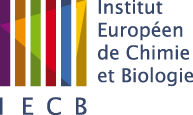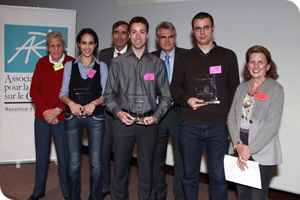| A young IECB scientist awarded by the French Association for Cancer Research (ARC) |
|
Currently, the vast majority of chemotherapy treatments affect both healthy and cancer cells indiscriminately. They can cause numerous adverse side effects, such as mucositis, hair loss, digestive disorders, cardiac, neurological and hematologic toxicity, etc. In October 2011, Neil Owens presented promising initial results to the jury of the Helen Starck prize of ARC. His approach is simple and effective. It consists in creating thousands of different potential mimics and then selecting those that interact with the receptor that triggers apoptosis in tumor cells. In June 2011, in the context of a collaboration supported by Interbio, the biocluster of south-west Europe, Neil Owens went to Barcelona to screen a library composed of over 200,000 compounds. In the end, within only seven days, he managed to identify one hundred candidates. "Now we can start more detailed experiments. We must determine the molecular sequences of the candidates, re-synthesize them, and validate their ability to kill tumor cells in vitro. If things go well, I hope we will begin tests in in vivo models by 2013", concludes the researcher. |
2, Rue Robert Escarpit - 33607 PESSAC - France
Tel. : +33 (5) 40 00 30 38 - Fax. : +33 (5) 40 00 30 68






